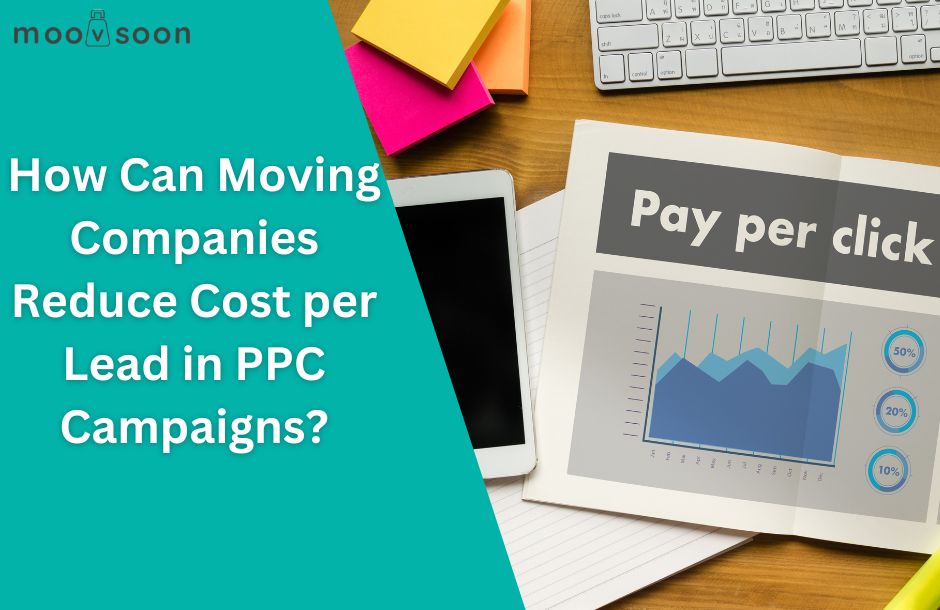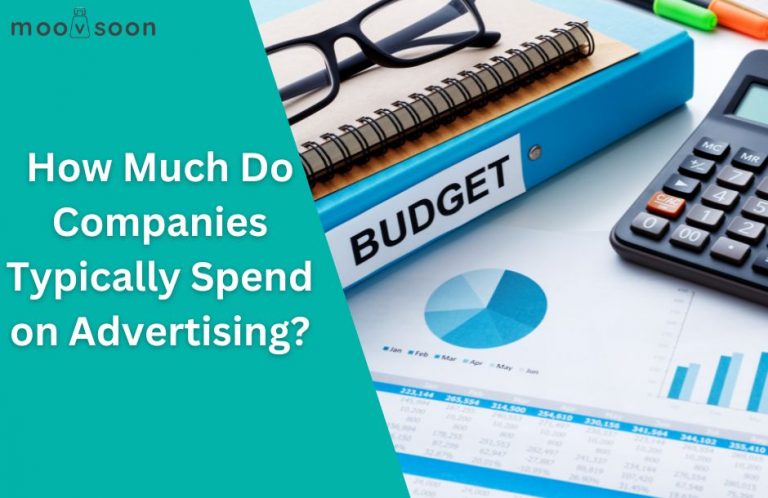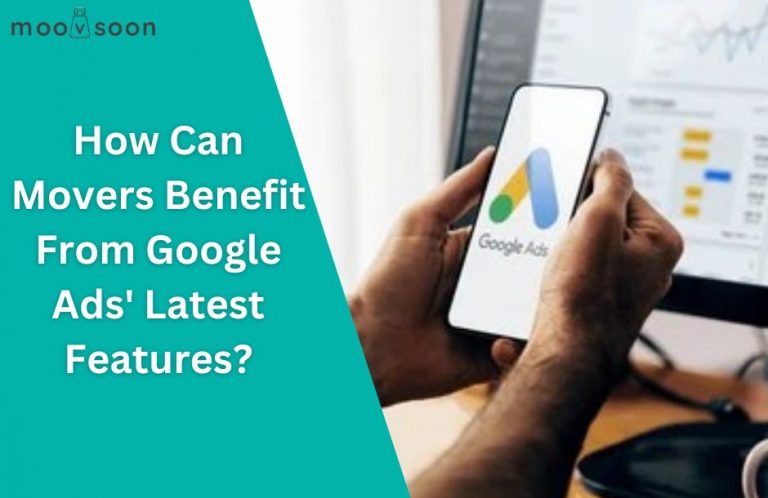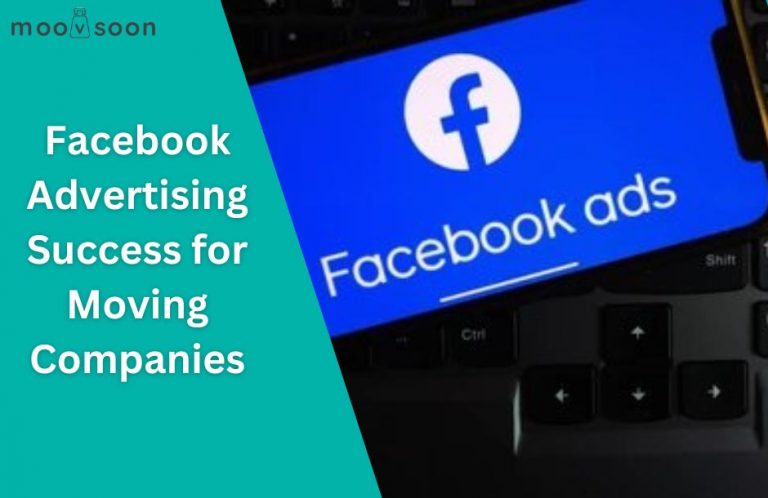
How Can Moving Companies Reduce Cost per Lead in PPC Campaigns?
In the bustling landscape of moving companies, mastering cost per lead (CPL) in pay-per-click (PPC) advertising is crucial for financial success. With the right strategies, businesses can significantly lower advertising costs while attracting high-quality leads. Understanding how to streamline your CPL not only enhances your advertising efficiency but also boosts overall conversions, ultimately leading to a healthier bottom line.
Over the years, the approach to PPC advertising has evolved, and companies now prioritize data-driven decisions. The shift towards long-tail keywords has gained traction as more businesses recognize their potential for lower competition and higher relevance to specific services. This trend is vital in helping moving companies connect with potential customers who are actively searching for their services, thus improving lead quality.
To effectively reduce CPL, it is essential to continuously refine your keyword strategy. Long-tail keywords can help attract qualified leads due to their specificity, allowing companies to spend less while still reaching the right audience. Furthermore, utilizing automated bidding tools enables businesses to adjust bids based on performance insights, ensuring that marketing budgets are not wasted on underperforming keywords.
How can moving companies leverage these strategies to improve their PPC campaigns? By adapting to the evolving digital marketing landscape and focusing on cost-effective techniques, businesses can position themselves for success in attracting high-quality leads and driving growth.

What is ad fatigue, and how does it affect PPC performance?
Ad fatigue occurs when an audience becomes overly exposed to the same advertisement, resulting in a decrease in engagement and effectiveness. In PPC campaigns for moving companies, ad fatigue can lead to higher costs per lead as potential customers become less responsive to repetitive ads. This phenomenon affects PPC performance by diminishing the click-through rate (CTR) and increasing the cost-per-click (CPC), ultimately reducing the return on investment (ROI).
To combat ad fatigue, moving companies should regularly update their ad creatives and messaging. Incorporating varied visuals and copy can help maintain audience interest. Additionally, leveraging A/B testing to experiment with different ad variations can reveal which elements resonate best with the target audience. By revitalizing ad content and strategically managing ad frequency, moving companies can optimize their PPC campaigns, keeping their audience engaged and lowering the cost per lead.
How does repeated exposure to the same ads lead to ad fatigue?
Ad fatigue occurs when a target audience is exposed to the same advertisements repeatedly, leading to decreased engagement and interest. In PPC campaigns for moving companies, this can negatively impact performance by reducing click-through rates and increasing costs per lead.
Users may start ignoring the ads, or worse, find them irritating, which can diminish brand perception. To combat ad fatigue, it’s crucial to rotate ad creatives, diversify messaging, and use frequency capping. This guarantees the audience sees fresh content, helping to maintain engagement and optimize PPC effectiveness.
Why does ad fatigue increase cost per click and lower conversions?
Ad fatigue occurs when audiences repeatedly see the same ads, leading to decreased engagement and increased costs. In pay-per-click (PPC) campaigns, ad fatigue raises the cost per click (CPC) because users become less responsive over time, reducing ad effectiveness. This decline in engagement forces advertisers to bid higher for clicks to maintain visibility, inflating costs.
Additionally, fatigued ads often result in lower conversion rates as potential customers disengage, leading to diminished returns on investment. Regularly renewing ad creatives and targeting strategies can mitigate ad fatigue, optimizing PPC performance and reducing CPC.
What strategies can combat ad fatigue in PPC campaigns?
What strategies can help reduce ad fatigue in PPC campaigns? Below are several effective approaches to keep your ads fresh and engaging:
- Regularly Update Ad Creatives: Consistently refreshing your ad visuals and copy helps to capture audience’s attention. New designs prevent viewers from becoming bored with your content, ensuring they remain interested in what you offer.
- Diversify Audience Targeting: Broadening your audience can prevent oversaturation. By targeting different demographics or interests, you can reach new potential customers and avoid exhausting your current audience, keeping your campaigns effective.
- Utilize A/B Testing: Conducting A/B tests allows you to compare different ads and determine which elements resonate best with your audience. This data-driven approach helps you optimize your campaigns for better performance and engagement.
- Incorporate Seasonal Themes: Aligning your ads with seasonal events or holidays can make your content more relevant and timely. Seasonal themes attract attention and encourage potential clients to engage with your offerings.
- Analyze Performance Metrics: Regularly reviewing your campaign performance helps you identify patterns of fatigue. Understanding when engagement drops enables you to make timely adjustments to your ads, keeping them effective.
To summarize, implementing these strategies can significantly combat ad fatigue in PPC campaigns. By keeping your ads fresh and targeting diverse audiences, you can maintain interest and improve overall campaign performance.
How does regularly refreshing ad creatives re-engage potential clients?
Revitalizing ad creatives regularly is essential for re-engaging potential clients in PPC campaigns, particularly for moving companies. It combats ad fatigue by presenting new visuals or messages that capture user attention and maintain interest. Strategies include A/B testing different ad formats, using seasonal themes, and updating visuals with current trends.
This approach not only keeps the content fresh but also aligns with user interests and behaviors, enhancing engagement rates. Utilizing customer feedback to tailor ads further guarantees relevance, ultimately reducing the cost per lead by maintaining high click-through rates.
Why is diversifying audience targeting important to prevent oversaturation?
Diversifying audience targeting in PPC campaigns is essential for moving companies to prevent oversaturation and combat ad fatigue. By reaching different segments, companies can maintain engagement and reduce the risk of potential customers becoming desensitized to repetitive ads.
Ad fatigue occurs when the same audience sees the same ads too frequently, leading to decreased effectiveness. Strategies like rotating ad creatives, using dynamic ads, and employing A/B testing can refresh user interest. Additionally, leveraging varied platforms and adjusting targeting parameters helps spread exposure, ensuring a broader reach and sustained campaign performance.
How can optimizing bidding strategies improve PPC ROI for movers?
Optimizing bidding strategies can greatly improve PPC ROI for moving companies by ensuring that advertising spending is efficiently allocated. Dynamic bidding allows advertisers to adjust bids based on real-time market conditions, targeting high-intent keywords and peak times for customer engagement. By utilizing automated bidding strategies, such as Target CPA (Cost Per Acquisition) or Target ROAS (Return on Ad Spend), companies can focus on achieving specific financial goals, and enhancing budget control while maximizing potential leads.
For instance, a moving company might use historical data to identify peak moving seasons and adjust bids accordingly, ensuring higher visibility during these periods. Additionally, employing bid modifiers for factors like device type or location can further refine targeting efforts, allowing for more personalized ad delivery. According to a 2022 study by WordStream, businesses that optimized their bidding strategies saw an average ROI increase of 30%, illustrating the potential benefits of this approach.
What role does adjusting bids based on performance metrics play?
Adjusting bids based on performance metrics is essential for optimizing PPC ROI for moving companies. By analyzing cost-per-click (CPC), click-through rates (CTR), and conversion rates, movers can allocate their budget more effectively. High-performing keywords should receive higher bids to maximize visibility while underperforming ones should be reduced or paused.
Implementing automated bidding strategies, like target CPA or ROAS, can further refine bid adjustments, ensuring efficient spending. Such strategies not only improve lead quality but also enhance overall ROI, making PPC campaigns more cost-effective for moving companies.
How can automated bidding tools enhance cost-efficiency?
Automated bidding tools can greatly enhance cost-efficiency in PPC campaigns for moving companies by adjusting bids in real-time based on predefined performance goals. These tools analyze vast amounts of data, including user behavior and historical performance, to refine bids for maximum ROI.
For instance, Google’s Smart Bidding uses machine learning to predict outcomes and adjust bids accordingly, helping to reduce cost per lead. By ensuring ads are shown to the most relevant audience at ideal times, these tools minimize wasted spend and improve overall campaign performance.
Why is focusing on high-performing keywords crucial in PPC campaigns?
Focusing on high-performing keywords is essential in PPC campaigns for moving companies because it directly impacts the effectiveness and efficiency of ad spending. High-performing keywords are those that generate high click-through rates and conversions, indicating strong alignment with user intent.
By targeting these keywords, moving companies can attract more relevant traffic, leading to higher conversion rates and lower cost per lead. This strategic focus allows businesses to allocate their budget toward the most promising opportunities, maximizing return on investment. Additionally, leveraging tools such as Google’s Keyword Planner can help in identifying these valuable keywords, ensuring that campaigns are continuously optimized for performance.
How does regular keyword research identify effective terms for targeting?
Regular keyword research is essential for identifying effective terms in PPC campaigns for moving companies. High-performing keywords directly influence ad visibility and lead quality. By focusing on these keywords, campaigns can target audiences more precisely, reducing wasted spend and increasing conversion rates.
Regular updates guarantee alignment with market trends and customer behavior, maintaining competitive edge and cost efficiency. For example, using keywords like “affordable movers” or “trusted moving company” can attract users actively seeking services, improving lead quality and lowering cost per acquisition.
Why should negative keywords be used to filter out irrelevant traffic?
Negative keywords are vital in PPC campaigns to filter out irrelevant traffic, ensuring that ads reach the most interested audience. By excluding certain terms, moving companies can avoid paying for clicks from users who are unlikely to convert, thereby reducing the cost per lead.
This focused approach allows advertisers to allocate their budget towards high-performing keywords, which are more likely to result in qualified leads. Emphasizing high-performing keywords enhances the campaign’s efficiency and return on investment. This targeted strategy is essential for maximizing the effectiveness of PPC efforts in competitive industries.
How do high-quality landing pages contribute to reducing cost per lead?
High-quality landing pages considerably reduce the cost per lead (CPL) in PPC campaigns for moving companies by directly enhancing user experience and conversion rates. A well-designed landing page guarantees that visitors find relevant, valuable information aligned with the PPC ad they clicked. This alignment reduces bounce rates and increases the likelihood of conversion, leading to a lower CPL.
Key features of effective landing pages include clear, concise messaging, strong calls to action (CTAs), and user-friendly design. Additionally, incorporating testimonials and trust badges can build credibility and encourage engagement.
According to a study by Unbounce, optimized landing pages can increase conversion rates by up to 30%. This improvement in conversion rates translates to more leads at a lower cost, effectively reducing the CPL for moving companies. Furthermore, ongoing testing and optimization of landing page elements can further enhance performance and cost efficiency.
What elements make a landing page optimized for conversions?
An optimized landing page for moving companies should focus on several key elements to enhance conversions and reduce cost per lead. First, guarantee a clear and compelling headline that addresses the visitor’s need immediately. Use high-quality images and videos to showcase your services and build trust. Include a concise value proposition highlighting your unique selling points, such as affordability or reliability.
Trust indicators like customer reviews, testimonials, and industry certifications are essential for credibility. A prominent call-to-action (CTA) button, such as “Get a Free Quote,” should be strategically placed and visually distinct to guide users toward conversion. Finally, verify the page is mobile-friendly and loads quickly, as these factors greatly influence user experience and conversion rates.
How does aligning landing page content with ad messaging improve engagement?
Aligning landing page content with ad messaging greatly enhances engagement by ensuring a seamless user experience. When potential customers click on an ad and find that the landing page content directly reflects the ad’s promise, their interest is maintained, reducing bounce rates. High-quality landing pages that mirror ad messaging foster trust and clarity, leading to higher conversion rates.
What benefits do professional PPC management services offer moving companies?
Here are some key benefits:
- Expert keyword research: Professional services conduct thorough keyword analysis to identify the most relevant terms for your moving business, ensuring your ads attract the right customers who are actively searching for moving services.
- Strategic ad creation: These experts craft compelling ad copy that resonates with potential clients. By highlighting unique selling points, they enhance the appeal of your moving services and increase the likelihood of user engagement.
- Precise audience targeting: PPC management services utilize advanced targeting techniques to reach specific demographics. This ensures that your ads are displayed to individuals most likely to require moving services, maximizing the effectiveness of your advertising budget.
- Ongoing optimization: Continuous monitoring and adjustment of your PPC campaigns are crucial. Professional managers analyze performance metrics, making necessary changes to improve efficiency, cut costs, and increase your overall return on investment.
- Adaptation to market trends: The moving industry can fluctuate due to various factors. Professional PPC services stay updated on market trends, allowing them to pivot strategies quickly and maintain their competitive edge in the advertising landscape.
How can expert keyword research and ad creation enhance campaign performance?
Expert keyword research and ad creation greatly enhance the performance of PPC campaigns for moving companies by targeting the most relevant and effective search terms. This focus guarantees that ads reach potential customers actively seeking moving services, thereby increasing conversion rates and reducing cost per lead.
Professional PPC management services offer the advantage of data-driven strategies, continual optimization, and competitive analysis, all of which refine ad performance. By leveraging industry expertise, moving companies can achieve greater visibility, drive qualified traffic, and maximize their return on investment in digital advertising.
Why is ongoing optimization essential for sustained PPC success?
Ongoing optimization is essential for sustained PPC success, especially for moving companies. By continuously refining ad strategies, businesses can adapt to market changes, improve ad relevance, and reduce cost per lead. Professional PPC management services offer expertise in keyword selection, ad copywriting, and bid adjustments.
These services help companies achieve better targeting, higher conversion rates, and improved ROI. Additionally, professional management includes regular performance analysis, ensuring campaigns remain effective and competitive. This strategic approach enhances lead quality and lowers acquisition costs over time, maximizing advertising budgets efficiently.
Conclusion
To effectively lower costs per lead in PPC campaigns for moving companies, it’s essential to focus on targeted strategies and continuous improvements. Analyzing your audience’s behavior allows for the creation of ads that connect with potential clients, which is vital for generating quality leads.
The significance of adapting campaigns based on performance metrics cannot be understated. By regularly reviewing click-through rates, conversion rates, and cost per click, you ensure that your budget is allocated wisely and not wasted on ineffective ads.
Engaging in ongoing refinement of your PPC strategies is crucial for long-term success. This includes updating keyword lists with high-intent terms and utilizing negative keywords to eliminate irrelevant clicks. Implementing retargeting strategies can help reconnect with users who previously showed interest in your services.
Now is the time to put these strategies into action. Start analyzing your audience and refining your campaigns today. Are you ready to enhance your lead generation efforts and improve your PPC performance?



